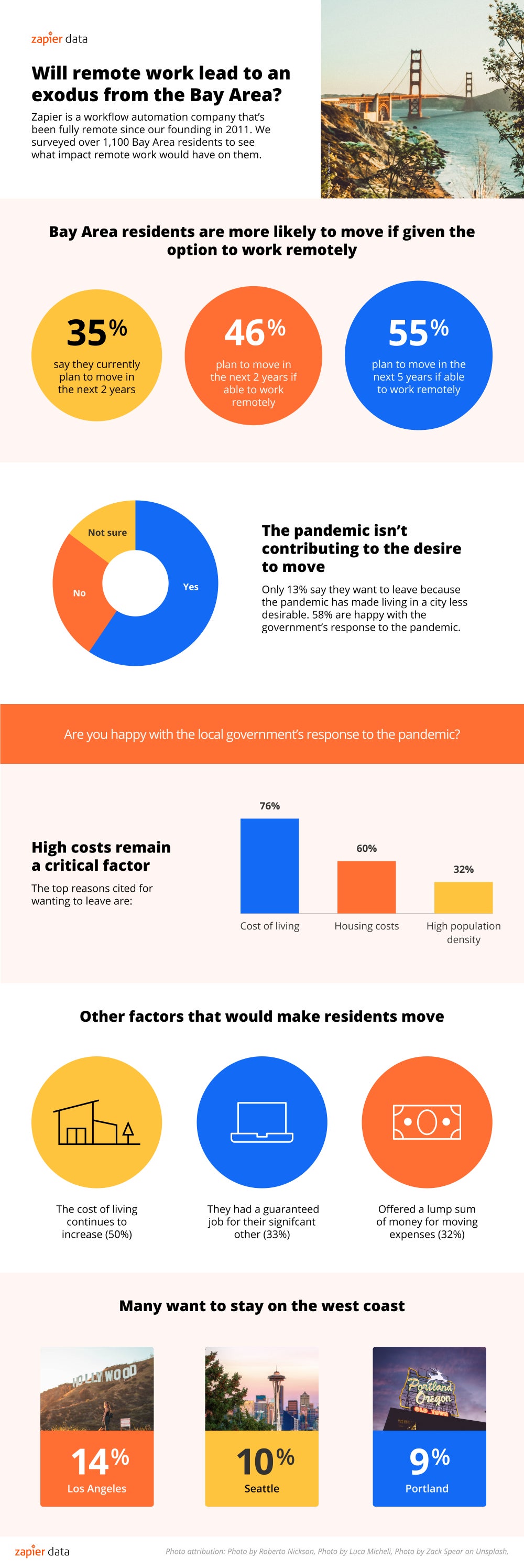Grow Your Business, Not Your Inbox
Stay informed and join our daily newsletter now!
2 min read
As Americans adjust to a work-from-home reality, tech companies are taking a stereotypically progressive stance on making those policies permanent. Facebook CEO Mark Zuckerberg said earlier this month that 50 percent of Facebook employees could permanently work from home in the next decade, and Twitter CEO Jack Dorsey told its employees they can work from home permanently unless their jobs require physically going to the office.
So the next question those companies’ employees will likely ask themselves is natural: Why would I stay in the Bay Area if I’m not going into the office? Long the epicenter of tech in the U.S., the Bay Area has become prohibitively expensive for all but the highest-paid workers. Its housing costs are among the highest in the nation, and it’s gotten so bad that companies like Google have pledged staggering sums to help solve the shortage of affordable housing.
Related: What Nobody Tells You About Remote Work
So if mid-level tech employees who pay astronomical rent for tiny apartments can work from home permanently, why would they stay? It’s a question that Zapier asked 1,100 Bay Area residents, 46 percent of whom said they’d leave the area permanently if their jobs went full-time remote. Though it’s certainly played its part, the global health crisis, which has hit large urban centers the hardest, isn’t the main reason behind this statistic. Respondents cited cost of living, housing costs and high population density as the top three reasons they’d leave. Nearly 50 percent said they’d move to a suburb outside an urban center, so it’s easy to deduce that more space and fewer neighbors are leading incentives.
Related: Improving Productivity for Remote and Distributed Work Forces
There is, however, at least one potential drawback to exiting the big city. Some CEOs, like Facebook’s Zuckerberg, have already warned that employees who leave the Bay Area can expect salary reductions in accordance with the cost-of-living of their new chosen homes. Read on for more stats.
https://www.entrepreneur.com/article/351172


